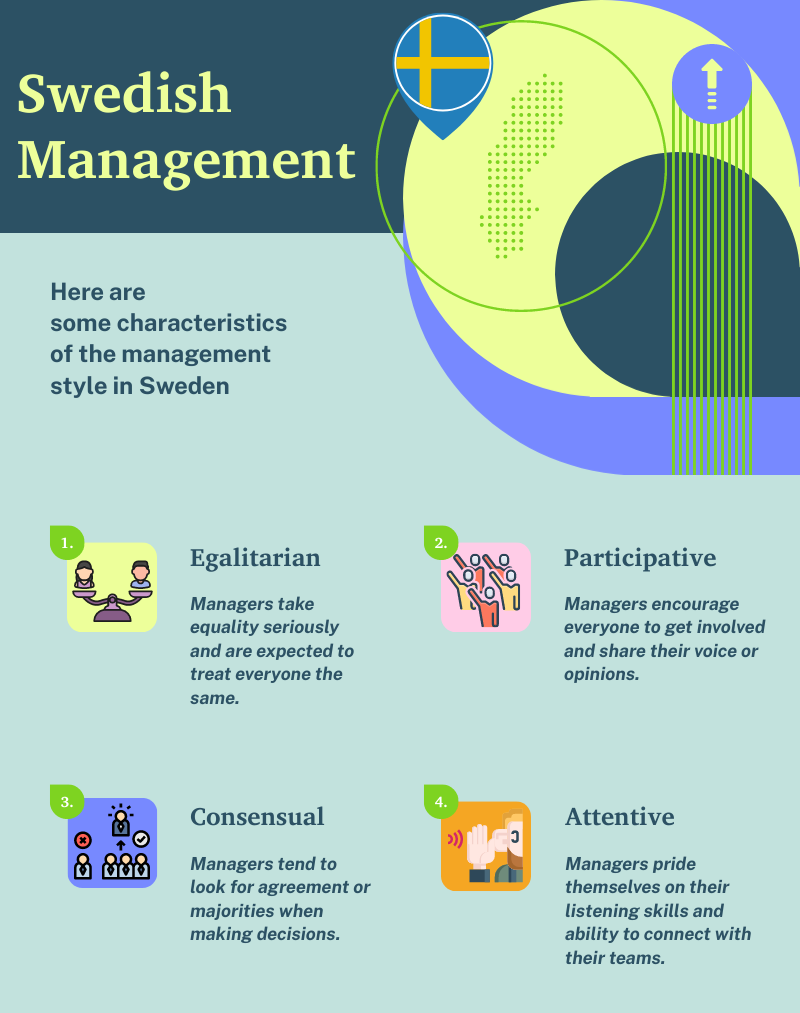
Cross Cultural Management Guide for Sweden
The tips offered below are for managers who want to learn more about the management style and business culture of Sweden.
This guide is useful for professionals who are relocating to the country for employment as well as those who may have Swedish employees in their global or multicultural teams.
- Hierarchy
- Leadership style
- Time and scheduling
- Communication style
- Negotiation style
Being a Manager in Sweden
To be an effective manager, you need to appreciate that the Swedish take equality, respect and deference, really seriously.
- If you are new to the country, ensure you take time to understand equality laws in the workplace.
- Swedish leadership (the ‘Lagom Way’) is based on consensus and non-hierarchical decision-making.
- The Swedes do not warm to displays of authority or status - a manager is treated as an equal.
- This is not a culture that appreciates "hard sell" techniques.
The Role of a Manager
In Sweden, as in most egalitarian cultures, positions of authority are earned largely on the basis of individual achievement and people at all levels of the organization, while respecting authority, are free to aspire to those positions.
- Swedish leadership culture looks to respect the individual and nurture the collective.
- The role of the leader is to harness the talent of the group assembled, and develop any resulting synergies.
- The leader will be deferred to as the final authority in any decisions that are made, but they do not dominate the discussion or generation of ideas.
- Praise should be given to the entire group as well as to individuals.
Approach to Change
Sweden has a low tolerance for change, meaning that implementing changes can be difficult to bring about. The underlying concern is that change may threaten the social fabric.
- Even though the Swedes are cautious in business, they are some of the most rapid high-tech innovators in the world.
- In order for change to take hold, however, it needs to be perceived as good for the group and be accepted by the group.
- Cultural sensitivity is needed as Sweden’s attitude toward risk is dramatically impacted by the negative ramifications of failure on both the individual and the group.
Approach to Time
Sweden is a time-conscious culture, and adherence to schedules is important and expected.
- In Sweden missing a deadline is a sign of poor management and inefficiency and will shake people’s confidence.
- People in time-conscious cultures tend to have their time highly scheduled, and it’s generally a good idea to provide and adhere to performance milestones.
Decision Making
Swedish organizations are relatively flat with few management levels. Matrix organizations are common and employees often report to more than one manager.
- Swedish management style is based on the premise that all work has value and that employees come to work wanting to do a good job.
- Swedish managers see themselves as coaches rather than as autocratic rule-makers.
- They guide subordinates and pride themselves on being good listeners.
- Subordinates are free to solve unexpected problems without referring the matter to the manager.
- Status is not very important in Swedish companies. Any employee of a company can approach the Managing Director.
- Employees downplay their achievements and do not expect to be praised for doing their jobs well.
- When it comes to decisions, managers tend to adopt a democratic and participative management style.
Boss or Team Player?
The role of the leader is to harness the talent of the group assembled, and develop any resulting synergies.
- The leader will be deferred to as the final authority in any decisions that are made, but they do not dominate the discussion or generation of ideas.
- A typical feature of Sweden’s management style is interpersonal trust and transparency.
- Managers are expected to be inclusive and welcome employee input.
- Sustainable working practices are also an important part of a management role.
Communication and Negotiation Styles
The Swedish communication style is frank, direct, open and focused on what is said.
- Swedes prefer to get down to business quickly.
- They tend to avoid confrontation; be alert for a non-committal phrase that denotes a negative response.
- Efficiency is important and this is often reflected in the language and choice or use of words.
- Proposals will be also viewed from this perspective.
- Swedes use silence to think before speaking and to avoid confrontation.
- Do not continue speaking simply because the other party is silent.
- Swedes do not interrupt others who are speaking.
- Verbal contracts will be followed, although written agreements are quite common.
- Swedes can be tough negotiators.

Get Expert Support
Why not take a two-hour live webinar, customised to meet your unique needs, with one of our Sweden business experts?
They can help you navigate Swedish business culture with ease.

 +44 0330 027 0207 or +1 (818) 532-6908
+44 0330 027 0207 or +1 (818) 532-6908
